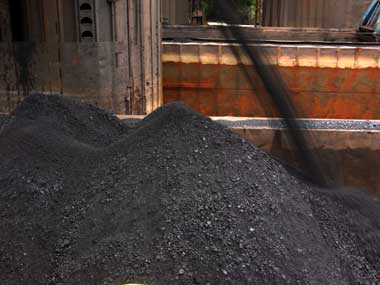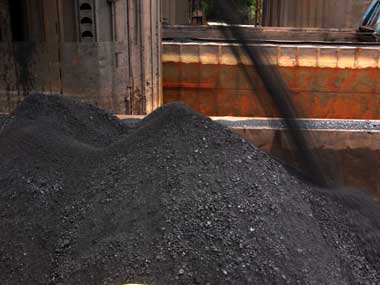New Delhi: The first ever auction of coal mines began today with the government putting three mines in Jharkhand and West Bengal on block for captive use. The much-delayed auction will feature mines that have total reserves of 500 million tonnes. The move comes after the Centre drew flak for delaying the auction and the CAG earlier saying that allotment of 57 mines to private firms without auction had resulted in a notional loss of Rs 1.8 lakh crore to the exchequer. [caption id=“attachment_1409763” align=“alignleft” width=“380”]  Coal blocks on offer. Getty Images[/caption] “The government has initiated auction of coal blocks by inviting applications for the first time, for allocating coal blocks through competitive bidding for specified end-uses,” an official statement said in New Delhi. The Ministry of Coal has offered three blocks for auction for captive use for steel, cement and sponge iron companies – two in Jharkhand and one in West Bengal. Last year, the government had allocated 17 coal mines to central and state public sector units, including four to NTPC. It had planned to auction 54 coal blocks with total estimated reserves of about 18 billion tonnes. The blocks in Jharkhand include Jhirki & Jhirki (West) of East Bokaro Coalfield having geological reserves of 267.91 MT coking coal for steel (blast furnace) and Tokisud-II of South Karanpura Coalfield with 127.692 MT of reserves for cement plant. The mine in West Bengal, Andal Babuisol of Raniganj Coalfield, has about 103.841 MT of reserves for sponge iron. The ministry told bidders that detailed documents, including RFP, copy of the geological report are available for sale at its subsidiary Central Mine Planning and Design Institute (CMPDIL) Ranchi. “The bidders are required to bid above the prescribed floor price,” the statement said. Amid the controversies shrouding coal blocks allotment, the government for the last two years has been saying that the auction would take place shortly. The cabinet last year in September had approved the methodology for auctioning coal blocks, providing for upfront and production-linked payments and benchmarking of coal sale prices. “The methodology provides for auctioning the fully explored coal blocks and also provides for fast tracking the auction by exploration of regionally explored blocks,” the government had said adding that the policy would ensure greater transparency. The policy provides for production-linked payment on a rupee per tonne basis, plus a basic upfront payment of 10 percent of the intrinsic value of the coal block. There would be development stage obligations in terms of milestones to be achieved such as getting mining leases and obtaining environment/forest clearances, while the bidder will have to give performance guarantees. The policy also provides for relinquishment of a block without penalty if the bidder has carried out the minimum work programme stipulated in the agreement. The Comptroller and Auditor General (CAG) in its report earlier had said that allocation of coal blocks between 2004 and 2009 without auction resulted in “undue benefits” worth Rs 1.8 lakh crore to private entities. This led to a furore in Parliament, with opposition parties seeking a probe into the matter. The CBI is investigating the issue. PTI
The much-delayed auction will feature mines that have total reserves of 500 million tonnes.
Advertisement
End of Article
Written by FP Archives
see more


)
)
)
)
)
)
)
)
)



